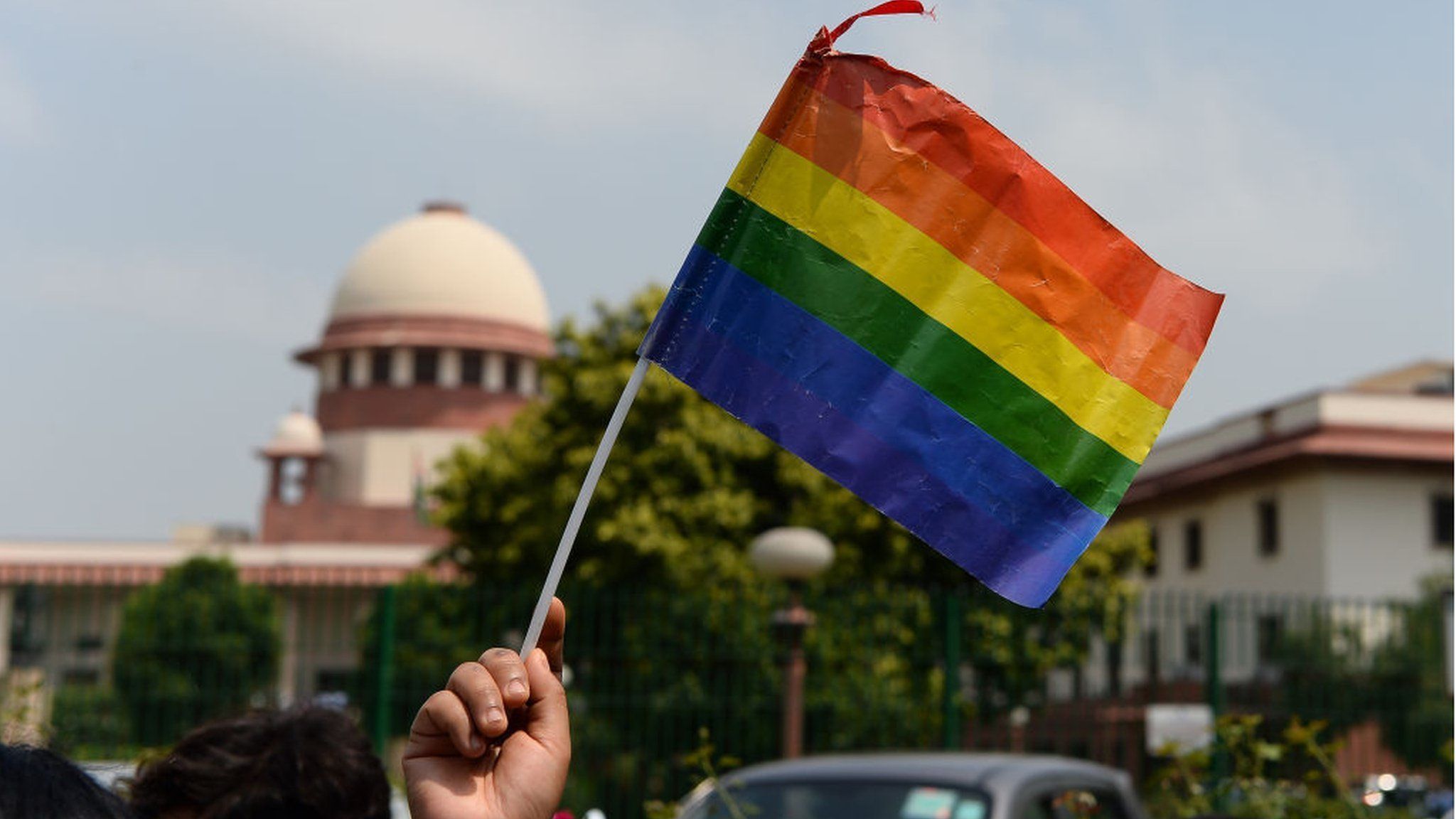-

-
-
Loading

Loading

India's Supreme Court is expected to make a landmark ruling on Tuesday regarding the legalisation of same-sex marriage. Petitioners argue that the current ban on same-sex marriage violates their constitutional rights and makes them "second-class citizens." However, the government and religious leaders have strongly opposed same-sex unions, citing cultural reasons. If the court approves marriage equality, it would grant tens of millions of LGBTQ+ individuals in India the right to marry and would necessitate significant changes in various areas of society, including adoption, divorce, and inheritance laws. A five-judge constitution bench heard the case in April and May, with Chief Justice DY Chandrachud calling it a matter of vital importance. The bench reserved its order on 12 May after considering 21 petitions filed by same-sex couples, LGBTQ+ activists, and organizations. The petitioners argue that marriage is a union between two individuals, not just between a man and a woman. They assert that laws should be revised to reflect changing societal concepts of marriage and the desire of same-sex couples for the respectability of marriage. The petitioners have repeatedly highlighted the constitutional right of all citizens to marry a person of their choice and the prohibition of discrimination based on sexual orientation. In addition, they argue that not being able to marry hinders their ability to hold joint bank accounts, own property together, or adopt children jointly. During the hearings, the judges appeared sympathetic to the concerns of same-sex couples and questioned the government on its approach to address these issues. The government, however, initially questioned the court's jurisdiction over the matter and advocated for the rejection of the petitions, arguing that marriage should only occur between heterosexual men and women. The opposition to same-sex unions extended to religious leaders, who argued that marriage is for procreation, not recreation. Despite these challenges, the judges decided to take on the case, focusing on whether the Special Marriage Act of 1954 could be amended to include LGBTQ+ individuals. The act was introduced to legitimize inter-faith or inter-caste marriages, consequently allowing individuals to marry without converting to their partner's religion. However, it became clear that amending this law alone would not suffice, as numerous other laws governing divorce, adoption, succession, and maintenance fall under religious personal laws. Consequently, crafting a comprehensive judgment requires careful consideration and statesmanship. Although the final ruling remains uncertain, it is widely anticipated that the court will grant same-sex couples certain social and legal rights, such as joint bank accounts, insurance policy nominations, and property co-ownership. The government has also expressed a willingness to consider granting these rights. The judgment carries significant weight in a country with an estimated 140 million LGBTQ+ individuals, and recent surveys suggest a growing acceptance of homosexuality. However, conservative attitudes towards sex and sexuality persist, leading to continued stigma and discrimination against the LGBTQ+ community.